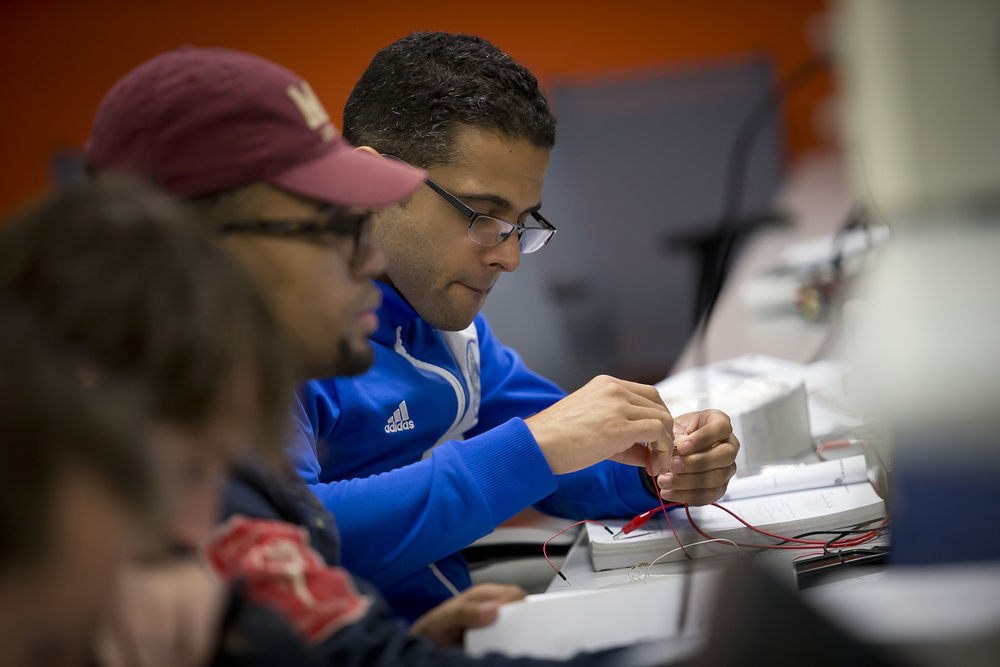Bachelor of Science in Electrical and Computer Engineering
The Bachelor of Science in Electrical and Computer Engineering at Temple University’s College of Engineering is a 128-credit hour degree that emphasizes control systems, electromagnetics, and electronics. This program integrates electrical and electronic systems with computer engineering, reflecting the growing importance of software and computing in engineering. It offers a balanced curriculum between hardware and software, and it offers focused concentrations in popular application areas.
Electrical and computer engineers play a crucial role in innovating and designing systems that enhance the efficiency and productivity of buildings, computers, factories, power grids and telecommunications. They are responsible for creating electric motors, radar and navigation systems, robots and various other electronic devices, contributing significantly to technological advancement and modern infrastructure.
Becoming an Electrical and Computer Engineer
To become an entry-level professional electrical or computer engineer, a bachelor’s degree in computer, electrical or electronic engineering is essential, with some advanced positions requiring further education or professional licensure. The Electrical and Computer Engineering undergraduate program provides students with a solid understanding of the core subjects of the industry, including analog and digital circuit design, signal processing, programming and circuit design, as well as vital skills necessary for the field, including mathematics, physics and reasoning.
Aspiring electrical and computer engineers should have a strong foundation in math and science and an active interest in engineering design and technology development. While studying, you will develop teamwork skills, precision in matching designs to specifications, and the ability to execute projects on schedule. Additionally, you can expand your expertise by choosing technical electives that either broaden your knowledge or hone in on specific engineering areas of interest.
What sets our Bachelor of Science in Electrical and Computer Engineering program apart?
-
Career preparedness: The department offers a broad range of upper-level courses that provide valuable insights into real-world applications. Students can join research labs, gaining experience that can lead to full-time employment. Additionally, they work closely with faculty to secure engineering internships, connecting with potential employers and helping them identify their interests, preferred career paths, and strengths and weaknesses.
- Expert faculty: Our students learn from faculty who work in many modern engineering fields such as biomedical; energy and power; machine learning and artificial intelligence; radar, communication and signal processing; and robotics and controls.
- Hands-on learning: As a student in the program, you are immersed in a curriculum that blends advanced theory with practical, hands-on laboratories, emphasizing real-world applications. Courses are taught in an integrated lab and lecture format within a studio-style classroom environment. The program boasts a course where you’ll design your own circuit boards, allowing you firsthand experience with hardware and applications. In your final year, you’ll participate in a senior design project, where you work on sponsored projects under the guidance of faculty or industry experts to tackle real-world problems.

